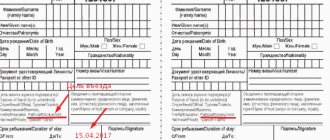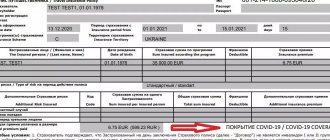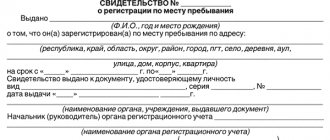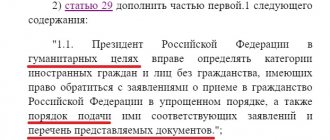Conditions for Ukrainian citizens to stay in Russia
In order to combat illegal migration in 2021, all Ukrainians are required to confirm legal grounds for residence in Russia.
Today, migration rules determine the following procedure for citizens of Ukraine:
- Crossing the Russian border on the basis of a foreign passport and migration card.
- registration with the territorial department of the Main Department of Migration Affairs of the Ministry of Internal Affairs (formerly FMS) within 7 days after entry.
Further actions depend on how long Ukrainian migrants intend to stay in Russia. Without legalization of status, you can stay up to 90 days during each six months. Next, they need to either leave the Russian Federation or apply for a temporary residence permit, work permit (patent), refugee status or temporary asylum.
How to check Ukrainians for deportation
Often, those who were deported to Ukraine remain unaware that, along with the forced eviction, they were subject to a ban on entry into Russia for a certain period. They can only find out about this the next time they try to cross the border. To avoid such an unpleasant surprise, you need to check in advance, for example, on the website of the Main Directorate for Migration Affairs of the Ministry of Internal Affairs, whether there are any restrictions https://services.guvm.mvd.rf/info-service.htm?sid=3000.
To check, you must enter the following data:
- Last name, first name and patronymic.
- Floor.
- Date of Birth.
- Citizenship.
- The type of document that will be searched (national passport, foreign biometric or old-style foreign passport).
- Document number, date of issue and country to which it belongs.
The information obtained in this way is for reference only. To receive an official response, you will have to personally contact the migration authorities.
Why Ukrainians can be deported
The grounds for the eviction of Ukrainian citizens outside the Russian Federation are related to the illegality of their residence in the Russian state. In other words, the first candidates for forced deportation are those who violate migration rules. This measure is the main method of combating illegal immigrants who do not pay taxes, thereby negatively affecting the country’s economy and its life in general.
Order No. 239 of the Ministry of Internal Affairs of the Russian Federation, issued in 2021, provides a list of reasons for which Ukrainian citizens can be deported from Russia:
- lack of registration;
- Commission of crime;
- non-compliance with requirements for periods of stay in the state;
- expired documents (TRP, residence permit or visa);
- lack of temporary residence permit or work permit;
- providing false documents;
- deprivation of refugee status or temporary asylum;
- illegal border crossing.
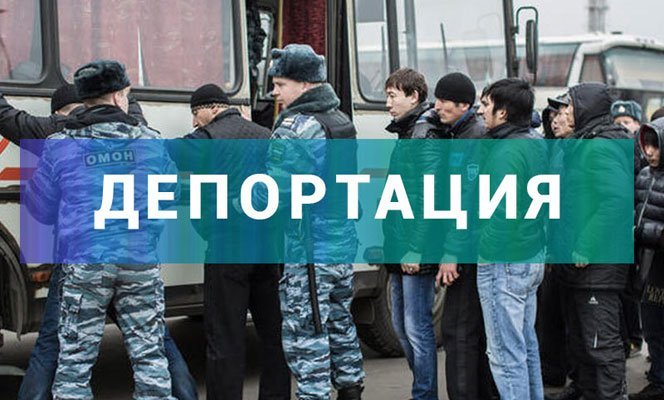
Who can't be deported?
On the issue of deportation, it is necessary to take into account the laws that apply at the international level and those adopted by the Russian authorities. For example, the expulsion of people from their country of nationality constitutes a serious violation of the Fourth Protocol of the European Convention, signed in Paris in 1957.
According to the Rome Statute, it is prohibited to expel national minorities and indigenous populations.
Russian legislation also clearly states who cannot forcibly leave Russia:
- refugees, as well as persons who have received the status of temporary or political asylum (except for those who have violated the law);
- persons who applied for the assignment of these statuses;
- persons who have lost these statuses, but due to humanitarian principles cannot be expelled due to military operations on the territory of their country;
- diplomats;
- residents of states where hostilities are taking place.
Who cannot be deported from the Russian Federation?
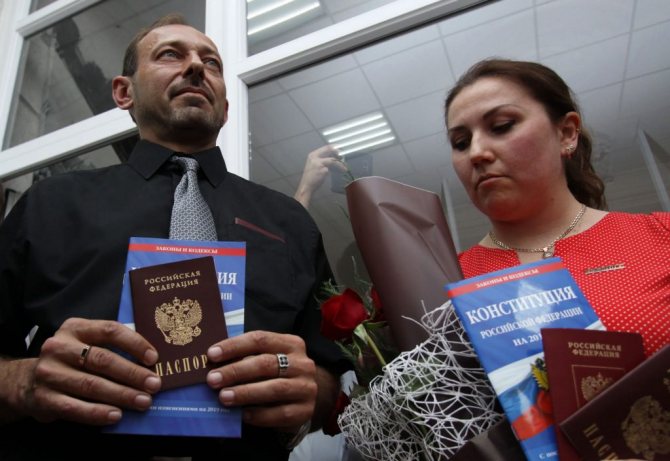
First of all, it is worth noting that in no case are persons with Russian citizenship subject to deportation, even if it has recently been acquired. Also, according to international law, the following categories of foreign citizens or stateless persons are not subject to forced or voluntary expulsion:
- representatives of national minorities or nationalities, if deportation may be considered a violation of their rights;
- citizens who have received refugee status;
- migrants if military operations are ongoing on the territory of their countries;
- received political asylum;
- migrants, including forced ones, as well as foreign citizens whose documents for participation in the State Resettlement Program are under consideration.
The final decision on the expulsion of foreign citizens from the Russian Federation is made at the state level.
How is the deportation of Ukrainian citizens going?
Before a person is deported, the fact of his violation of migration laws must be established. This responsibility is assigned to employees of the Main Directorate for Migration of the Ministry of Internal Affairs. After the violator is discovered, he is taken to the migration service department until all the circumstances of the case are clarified. He is then transferred to a closed facility, where he will be held until a decision is made regarding his deportation.
The decision is made by the head of the territorial migration service. If the penalty is expressed only in the imposition of fines or other administrative penalties that are in no way related to deportation, then the violator can only be expelled from the country through a judicial procedure.
Below we provide step-by-step instructions on how deportation from Russia to Ukraine occurs:
- sending a notification to a Ukrainian citizen that he had violated Russian legislation, in connection with which a decision was made to deport him;
- after that, a stamp prohibiting entry into the Russian Federation is placed on the Ukrainian’s migration card and his identity card;
- The violator must leave the state within 3 days; in case of cancellation of documents, he is given 15 days to leave.
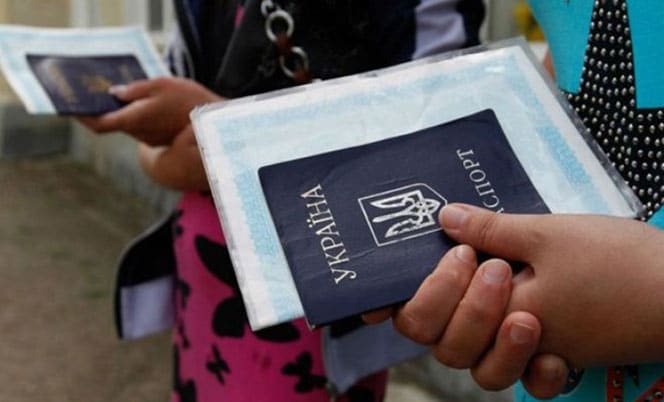
The eviction procedure is paid by:
- the deportee himself – by default;
- the party who invited this person or his relatives;
- diplomatic mission of the state of which he is a citizen;
- the Russian side, provided that all the above cases cannot be applied.
Don't forget about penalties. If it is revealed that a Ukrainian citizen is illegally staying in Russia, he will have to pay a fine of 3,000-5,000 rubles.
How is the deportation of foreigners from Russia carried out?
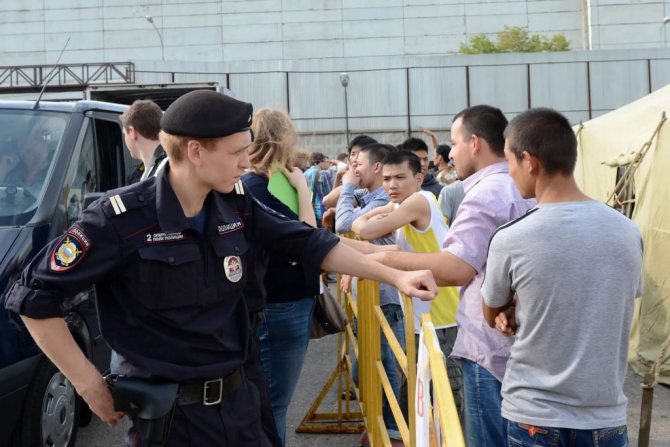
The deportation process begins from the moment when migration or law enforcement authorities discover a violation of rules, law and order, expired, false documents, etc. The foreign citizen receives a written notification at the temporary registration address, as well as an offer to voluntarily leave the territory of the country within a specified time.
In case of refusal of voluntary departure or malicious violations of migration rules, the migrant is forcibly assigned to a special institution for persons subject to deportation. Foreigners are provided with hot meals and medical care.
The migration card and the citizen’s passport are stamped with a ban on future entry into Russia. At customs, the migrant receives a written notification that he will be subject to criminal liability if he crosses the border illegally.
If a foreign citizen has committed a crime in Russia, he will be deported from the country after serving his sentence. The decision on deportation comes to the address of the penitentiary institution. Foreign citizens are deported under escort after serving their prison sentence.
If a migrant commits an administrative offense and is subject to a fine, he must pay it before leaving the country.
For how long can they be deported?
Most often, deportation is accompanied by a ban on subsequent crossing of the Russian border. This means that those who were planning to work in Russia will have to abandon this idea. For the most part, this situation is due to the carelessness of migrants: they forget about the expiration of documents giving the right to reside in Russia.
The period for which Ukrainian citizens are deported from Russia depends on the severity of the action committed. On average, the period of a ban on entry into Russia can range from 3 to 10 years.
Often, violators do not even know for how long they cannot cross the Russian border. To find out, you need to send a request on the website of the Main Department of Migration Affairs of the Ministry of Internal Affairs.
How to appeal deportation
A citizen who was deported to Ukraine can appeal the decision made regarding his person. He can apply to the court at his place of residence within 3 months or 10 days after receiving notification of the decision. If the court accepts the appeal, the deportation process will be suspended. This will enable the applicant to remain in Russia for the entire period of consideration of his case.
To submit an application you will need:
- The act to be appealed.
- Grounds for canceling deportation.
- Observed period for filing a claim (10 days for removal, 90 days for deportation).
If the arguments presented turn out to be unfounded, the decision to evict the applicant will be annulled. Otherwise, he will have to leave for Ukraine and wait until the entry ban expires for his next visit.

Is it possible to cancel deportation?
The decision to deport is subject to challenge only in court. But even in this case, the obligation to leave the country within the period established in the deportation decision remains in force. That is, a foreign citizen cannot go to court and thus extend his period of legal stay.
To challenge, grounds are required. This could be for example:
- The violation of the law was not the fault of the foreigner.
- There are documents confirming the legal right to stay on the territory of Ukraine, but for some reason they were not taken into account.
- The violation of the period of stay occurred for other valid reasons.
Being in Ukraine without residence documents and realizing that you may exceed the period of your stay, please take care of extending it or obtaining a temporary residence permit in advance.
It will cost you much less in both expense and stress than being deported from the country. You can, of course, try to appeal this decision through the court, if there are grounds and competent specialists.
What could be the consequences?
Violations of migration rules may result in material penalties or restrictive measures on visiting the Russian Federation. There is no need to be afraid of too severe punishment for those who slightly exceeded the permissible period of stay and voluntarily left the country. But illegal stay on its territory for a long period of time will certainly entail eviction and a ban on entry.
Those whose actions were also accompanied by the commission of a crime (for example, forgery of documents) or evasion of traveling abroad of the Russian Federation, the law provides for the payment of a fine. Paying off a financial penalty does not relieve deportation.
All information about violators is entered into a “black list”, which is stored in the system of the Main Directorate for Migration of the Ministry of Internal Affairs. In it you can also find a list of persons whose stay in Russia cannot be called desirable. This state policy restricts the entry into the country of foreigners whose presence may pose a danger to society or the constitutional order.
How to avoid getting sanctioned
In order not to expose yourself to humiliating actions from migration authorities, lawyers give advice on how to avoid deportation from Russia to a citizen of Ukraine:
- fill out each item on the migration card and correctly indicate the purpose of the visit;
- comply with the deadlines for migration registration, registration of temporary residence permits, residence permits and other permits;
- do not give original documents to anyone;
- renew all necessary certificates and certificates in a timely manner;
- do not violate Russian legislation.
All this will help avoid unpleasant misunderstandings.
Reasons and grounds for deportation of a foreign citizen from the Russian Federation
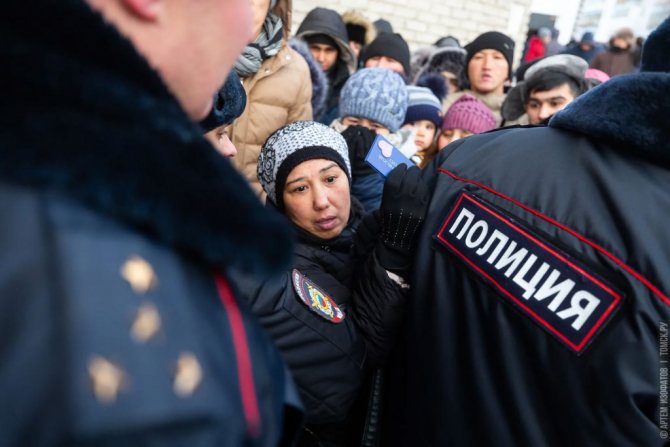
Foreign citizens and stateless persons have the right to stay in the Russian Federation on the basis of migration registration received by a temporary residence permit or residence permit. Each status allows you to stay in the country for a certain amount of time. A residence permit is now issued for an indefinite period, but if you do not comply with Russian legislation or violate the established rule, your residence permit may also be revoked.
The law defines categories of citizens who do not have the right to further reside in the Russian Federation:
- a person who does not have confirmation of registration;
- illegally crossed the border;
- foreigners, after cancellation of documents;
- criminals who have committed a serious crime, after serving a prison sentence, are subject to deportation;
- violating the rules of migration legislation;
- provided false information, forged documents;
- those who changed their place of residence but did not notify the relevant authorities;
- citizens who were previously expelled from the country and the ban has not yet expired;
- engaged in illegal labor activities.
The situation is worse with stateless persons. Most often, the basis for recognizing a person as stateless is the commission of a crime. It is often impossible to establish citizenship, so deportation is replaced by indefinite detention.
- How to check the deportation of a foreign citizen using a passport?
- Deportation and expulsion: what is the difference?
What interests Ukrainians most often?
In addition to the issues discussed, many more incomprehensible situations may arise when Ukrainians are banned from entering Russia. Below we will try to talk about some.
Small tips will help you find a way out of them:
- Can a person be deported anonymously? The main problem of the migration service remains the presence of illegal immigrants (especially in Moscow and St. Petersburg). Most often, they live in groups of several people in one apartment, do not always behave exemplary and create inconvenience for neighbors. In this case, you can submit an application to the Main Department of Migration Affairs of the Ministry of Internal Affairs anonymously. The application will not indicate the name or address of the person applying.
- Can they be evicted if they don’t have citizenship? The issue with stateless persons becomes especially acute when they commit a crime. After serving the assigned sentence, it is impossible to actually evict such persons outside the Russian Federation due to their lack of citizenship (for example, the offender still has a USSR passport in his hands). In this case, their imprisonment is extended for an unlimited period, since the presence of such persons in Russian society is undesirable.
- What is the difference between deportation and expulsion? Deportation rarely entails entry restrictions. The decision on it is made by the head of the migration unit in the violator’s region of residence. They can be expelled from Ukraine after a trial in parallel with the imposition of a fine and a ban on subsequent visits.
- What happens if you enter Russia contrary to the ban. There are often cases when Ukrainian citizens do not wait for the end of the established punishment and attempt a new trip to the Russian Federation. Here you should know that crossing the Russian border before the entry restriction expires is also a serious violation. When attempting to cross the border, violators of the entry ban will have their period of “non-entry” into Russian territory increased to 10 years.
How we are working
- Order a service
- Get the advice you need
- We prepare the necessary documents
- You receive quality service
When staying in any country, without being a citizen and without documents for permanent residence, it is worth remembering the existence of entry rules, restrictions on stay and other established rules.
Sometimes there are situations when, for various reasons, these rules are violated. As a rule, such a violation entails problems with government agencies and the law.
Deportation is a consequence of violation of Ukrainian legislation. Reasons for deportation may be:
1. Violation of the legal period of stay in Ukraine:
- long stay without leaving Ukraine,
- staying without documents or with documents whose validity has expired.
Of course, such a situation may arise due to circumstances that do not depend on a person’s will. For example, due to illness, natural disasters, accidents. In such situations, it is necessary to immediately resolve the issue of extending the period of stay in order to avoid troubles.
2. Illegal border crossing.
3. Administrative violations.
4. Criminal offenses.
Foreign citizens serve penalties for administrative and criminal offenses in the same way as citizens of Ukraine. And after that they can be deported.
5. In the case when a foreign citizen poses a threat to the security of the country and citizens of Ukraine.
A written decision is made on the deportation of a citizen. It specifies the period within which he must leave the country. In some cases, if a foreigner poses a threat to the country or has committed a serious crime, the person's passport will be marked as an “undesirable person.” If the deadlines are violated, then forced deportation is applied. In the event of forced deportation, the person who violated the law and the receiving party are obliged to compensate the costs of this process to the state.
When a deportation decision is served on a foreign citizen, the rights and obligations must be explained. If a foreigner does not understand the language, then an interpreter should be invited. He must also be given the right to have the assistance of a lawyer or a diplomatic representative of his country.
conclusions
The deportation of Ukrainian citizens is carried out according to the same rules as the deportation of citizens of other states. The main reasons for this procedure are: illegal stay in Russia, illegal entry, expired/canceled documents. Along with deportation, Ukrainians may face a fine and a ban on visiting the Russian state in the future for a period of 3-10 years. Compliance with all migration regulations will help you avoid such troubles.
Find out also what it means to extradite.
FAQ
Let's consider a number of popular issues related to the expulsion of foreigners from the Russian Federation.
Where can you check on the Internet whether a person is facing deportation?
To check whether a particular foreigner has the right to enter the Russian Federation, go to the Migration Department website and go to the section for checking the grounds for a ban on visiting Russia. By specifying information about the person who needs to be verified, the user will receive comprehensive information about whether a ban exists or not, how long it is valid, where it came from, and so on.
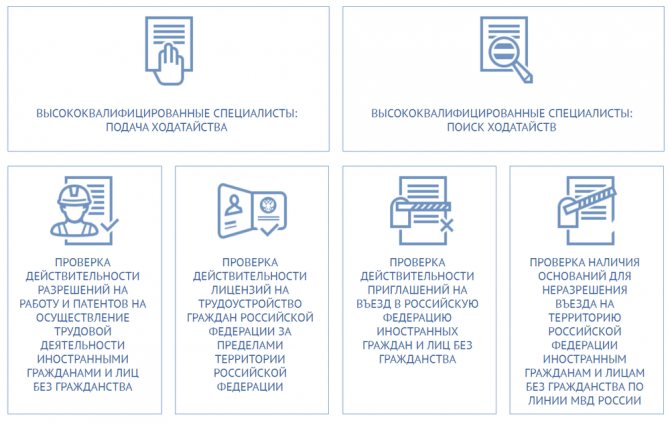
If a person was deported, can he enter for another reason, for example to visit his parents?
No. This is a reason to impose a ban on visiting the country for up to 5 years. During this period you will not be able to enter the Russian Federation. After the restrictions are lifted, it is allowed to visit Russia again.
Can they be deported if a foreigner with a residence permit does not live at the place of registration?
In most cases they can. Living outside the place of registration is an administrative violation, which usually results in expulsion from the country. But there is an exception. If a foreign citizen (IF) is registered at the address of the employer (legal entity) and the employer rents housing in another location on the basis of a concluded employment contract, this option is not a violation. But, as practice proves, such situations are extremely rare.
If a Ukrainian has exceeded his period of stay in Russia, can he be deported?
They can. This is one of the most commonly used bases. Nationality does not play any role in this situation.
Can you be deported for an expired migration card?
In a normal situation, a migration card is valid for 3 months. An exception is made for migrant workers. Regardless of the situation, an expired migration card becomes the basis for government agencies to file an application for deportation. However, most often, a fine is imposed upon the first such violation detected, and only when the problem arises again is the IS deported from the country.
Does the presence of traffic fines lead to deportation or not?
Yes. A fine for violating traffic rules that is not paid within a strictly defined period can become a reason for deportation from the country, the basis for which is a court decision on deportation, which is issued on the basis of an application from government agencies. As in the previous case, most often the offender is first fined and only then expelled from the country if the problem is not resolved.
The patent has expired, and the documents for the temporary residence permit have not yet been reviewed. Can they be deported?
If an IG has submitted all the documents to obtain TRP status, he does not have the right to be expelled from the country only on the grounds that the previous basis for staying in the country has already expired. But if, as part of the consideration of the application for a temporary residence permit, a refusal follows, the IG will be sent out of the country.
What benefits are there during the COVID-19 pandemic?
During this period, the so-called “ban on deportation” is in force, due to the understandable reasons why ISs do not have the opportunity to draw up documents according to the rules, and so on.
